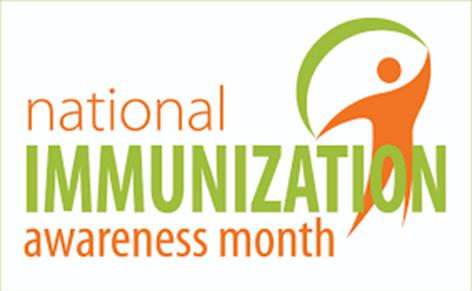Recognizing National Immunization Awareness Month
By Office of Communications & Marketing | Aug 16, 2023
 August is National Immunization Awareness Month, and we want to remind everyone about
the importance of getting appropriate vaccines. The Centers for Disease Control and
Prevention (CDC) reports that thousands of American adults become ill each year from
diseases that can be prevented through vaccinations.
August is National Immunization Awareness Month, and we want to remind everyone about
the importance of getting appropriate vaccines. The Centers for Disease Control and
Prevention (CDC) reports that thousands of American adults become ill each year from
diseases that can be prevented through vaccinations.
Three years into the pandemic, COVID infections are still occurring, and we must remain vigilant in protecting ourselves and our loved ones. We encourage you to do so if you have not been vaccinated against COVID. Since bivalent boosters became available, over two million doses have been administered to New Yorkers.
For parents and guardians of minor children, it is vital to raise awareness of the importance of childhood immunizations. Vaccines have been scientifically proven to prevent various illnesses that were once prevalent and dangerous. Diseases like measles, whooping cough, and polio, which used to pose significant threats, can now be prevented through vaccination. Childhood vaccines protect children early on and contribute to their long-term health. Immunizations reduce the risk of complications and chronic health issues arising from preventable diseases.
The Centers for Disease Control and Prevention (CDC) recommends routine vaccination to prevent 17 vaccine-preventable diseases in infants, children, adolescents, and adults. Here are some important reminders:
- Check your vaccination status: Ensure you and your loved ones are up-to-date with all recommended vaccinations.
- Talk to a healthcare provider: If you have concerns about vaccinations, consult a healthcare professional for personalized guidance.
- Educate others: Spread awareness among your family, friends, and colleagues about the importance of vaccines and their benefits.
- Come together as a community: Prioritize vaccinations to create a healthier and safer environment for everyone.
Michael H. Augenbraun, M.D., Professor of Medicine, Vice Chair, Department of Medicine, and Director of the Infectious Diseases Division, explains the importance of immunizations in this critical message.
###
Contact: Dawn S. Walker
347.533.2071 (Cell)
dawn.walker@downstate.edu
About SUNY Downstate Health Sciences University
SUNY Downstate Health Sciences University is the borough’s only academic medical center for health education, research, and patient care. It is a 342-bed facility serving the healthcare needs of New York City and Brooklyn’s 2.6 million residents. University Hospital at Downstate (UHD) is Downstate’s teaching hospital; it is backed by an outstanding medical school’s expertise and world-class academic medical center research facilities. Over 800 physicians, representing 53 specialties and subspecialties—many of them ranked as tops in their fields—comprise Downstate’s staff.
In addition to high-risk neonatal and infant services, pediatric nephrology, and dialysis (kidney diseases)—and offering the only kidney transplantation program in Brooklyn, among many other distinctive programs. Downstate comprises a College of Medicine, a College of Nursing, a School of Health Professions, a School of Graduate Studies, a School of Public Health, and a multifaceted biotechnology initiative, including the Downstate Biotechnology Incubator and BioBAT for early-stage and more mature companies, respectively. For more information, visit www.downstate.edu or follow us on Twitter at @sunydownstate.